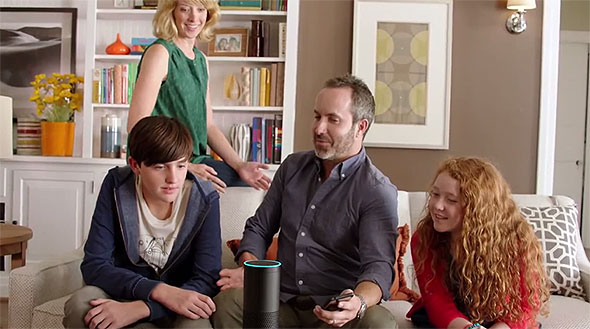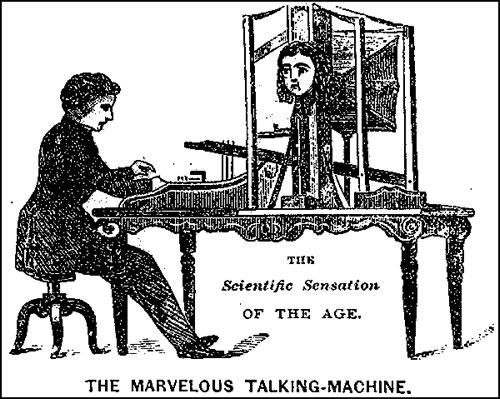 There’s something inherently human about people trying to make machines speak. It may seem a paradox, but history has proven it so.
There’s something inherently human about people trying to make machines speak. It may seem a paradox, but history has proven it so.
Just one example: Nearly 170 years before Siri, German inventor Joseph Faber demonstrated his Talking Machine, most commonly known as “Euphonia,” which was able to speak sentences in a human if monotone voice. The marvel became a staple of Barnum’s shows, billed as the “Scientific Sensation of the Age,” though it proved a fleeting success.
With Siri, machine conversation was here to stay. Amazon’s Echo, the Alexa-enabled next big thing after Apple’s invention, can answer all manner of question, but the company wants long conversations not quick exchanges, the better to keep you engaged in its products for longer spans. Such dialogues may make us less lonely, though we’ll become a little more artificial as gadgets become increasingly “real.”
In an interesting Backchannel interview, Steven Levy questions Rohit Prasad, Amazon’s VP of Alexa. One passage about human-machine conversation:
Rohit Prasad:
Are you aware of the Alexa Prize competition?
Steven Levy:
This is the $2.5 million challenge to computer science students that you announced in September?
Rohit Prasad:
Yes. In academia it’s hard to do research in conversation areas because they don’t have a system like Alexa to work with. So we are making it easy to build new conversational capabilities with a modified version of the Alexa skills kit. This grand challenge is to create a social bot that can carry on a meaningful, coherent, and engaging conversation for 20 minutes.
Steven Levy:
Would that be a Turing-level kind of conversation, do you think?
Rohit Prasad:
No, the Turing test comes down to human gullibility — can you fool an outsider into thinking it’s a human? If you think about certain tasks, Alexa is already better than a human. It’s super hard for a human to play a particular song out of millions of catalog entries within a second, right? If you ask Alexa to compute factorial of 60, that’s hard for a human. So we definitely did not want it to be like a Turing test. It’s more about coherence and engagement.
Steven Levy:
What are people going to be talking about in these 20 minute conversations with Alexa?
Rohit Prasad:
We are giving topics. Like, “Can you talk on the trending topics in today’s newspaper?” We expect the social bot to be able to chat with you on topics like scientific inventions, or the financial crisis.•

